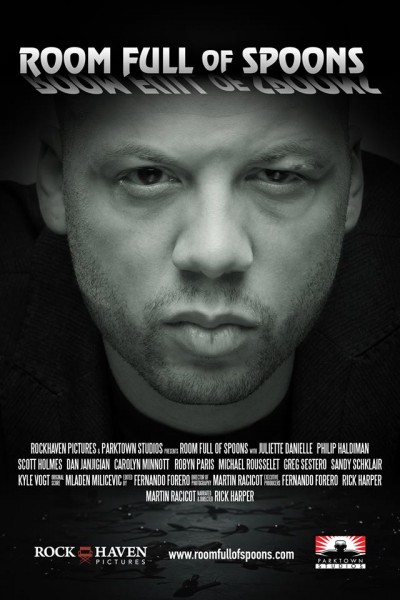Room Full of Spoons
Playing March 3 to 5, 10 to 13 and 17 at Cinematheque
Anyone who loves bad movies is familiar with The Room. The 2003 brainchild of the mysterious writer/ director/producer/star Tommy Wiseau, was an unseen disaster upon its initial release.
It has since become a cult phenomenon, famously called “the Citizen Kane of bad movies,” and has inspired books, films, video games and thousands of midnight screenings.
The new crowd-funded documentary Room Full of Spoons looks into the bizarre production of The Room, its evolution into a beloved piece of trash cinema and the complicated mythology surrounding the film. Most of The Room’s cast and crew appear in interviews, with a few notable exceptions (more on that later). But much like The Room itself, Room Full of Spoons is less about the onscreen product than it is about Wiseau himself.
Room Full of Spoons’ greatest strength is its approach to The Room’s and Wiseau’s mythology. Much of The Room’s appeal comes from the questions it raises: Who is Tommy Wiseau? Where is he from? How did he get $6 million to make this movie? Is it supposed to be funny? The documentary manages to answer many of the most perplexing Room questions without erasing any of its mystique. It’s a tricky balance, but even when presenting key revelations about Wiseau’s illusive identity, the filmmakers keep it.
That mystique is why Wiseau’s absence from Room Full of Spoons helps the movie rather than hurting it. As much as fans may want Wiseau to sit in front of the camera and tell us everything we want to know, the fact that he’s an enigma is what makes him so confusing and hilarious. I don’t want to know why he invented a fake assistant named Jon, maintaining a fake email even when all his collaborators know he’s really Tommy. Just knowing that he does this is enough. It’s worth noting that Wiseau, while initially giving the documentarians his blessing, has since condemned Room Full of Spoons in a series of bizarre YouTube videos. Whether these videos are sincere, or meant to drum up publicity for the documentary, is unclear.
The absence that does hurt the film, however, is Greg Sestero, Wiseau’s co-star and line producer. Sestero has been the public face of much of the cult carnival surrounding The Room, and his book The Disaster Artist became a critical smash. He’s as big a piece of the film’s production as Wiseau, but he’s capable of shedding light on things in a way that Wiseau isn’t. In addition to character absences, there are curious omissions of information. At one point, the filmmakers reveal documents detailing a fraud lawsuit filed against Wiseau by his financier’s spouse, only to abandon that thread entirely.
One other misstep is the onscreen presence of the documentarians themselves. While their creative process and relationship to Wiseau is key to revealing truths about their subject, it’s handled clumsily. The sleekness of the film feels like it’s being interrupted by a DIY effort every time the focus shifts. It’s possible to consider these inconsistencies and loose ends as loving tributes to The Room. But that’s being way too generous.
Published in Volume 70, Number 22 of The Uniter (March 3, 2016)







